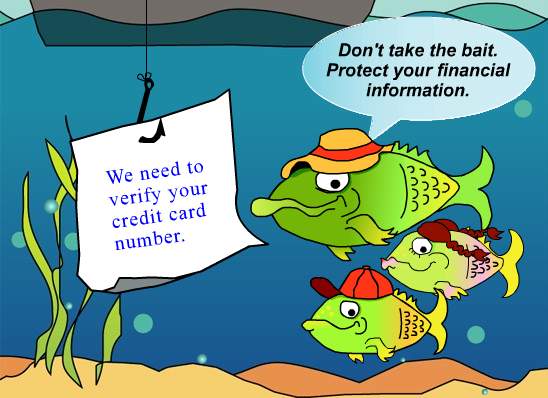|
The Franchise Rule
The Franchise Rule defines acts or practices that are unfair or deceptive in the franchise industry in the United States. The Franchise Rule is published by the Federal Trade Commission. The Franchise Rule seeks to facilitate informed decisions and to prevent deception in the sale of franchises by requiring franchisors to provide prospective franchisees with essential information prior to the sale. It does not, however, regulate the substance of the terms that control the relationship between franchisors and franchisees. Also, while the Franchise Rule removed the regulation of the sale of franchises from the purview of state law, placing it under the authority of the FTC to regulate interstate commerce, the FTC Franchise Rule does not require franchisors to disclose the unit performance statistics of the franchised system to new buyers of franchises (as would be necessary under state and federal Securities and Exchange law). The FTC Franchise Rule was originally adopted in 1978. ... [...More Info...] [...Related Items...] OR: [Wikipedia] [Google] [Baidu] |
Franchising
Franchising is based on a marketing concept which can be adopted by an organization as a strategy for business expansion. Where implemented, a franchisor licenses some or all of its know-how, procedures, intellectual property, use of its business model, brand, and rights to sell its branded products and services to a franchisee. In return, the franchisee pays certain fees and agrees to comply with certain obligations, typically set out in a franchise agreement. The word ''franchise'' is of Anglo-French derivation—from , meaning 'free'—and is used both as a noun and as a (transitive) verb. For the franchisor, use of a franchise system is an alternative business growth strategy, compared to expansion through corporate owned outlets or "chain stores". Adopting a franchise system business growth strategy for the sale and distribution of goods and services minimizes the franchisor's capital investment and liability risk. Franchising is rarely an equal partnership, especially in ... [...More Info...] [...Related Items...] OR: [Wikipedia] [Google] [Baidu] |
United States
The United States of America (U.S.A. or USA), commonly known as the United States (U.S. or US) or America, is a country primarily located in North America. It consists of 50 states, a federal district, five major unincorporated territories, nine Minor Outlying Islands, and 326 Indian reservations. The United States is also in free association with three Pacific Island sovereign states: the Federated States of Micronesia, the Marshall Islands, and the Republic of Palau. It is the world's third-largest country by both land and total area. It shares land borders with Canada to its north and with Mexico to its south and has maritime borders with the Bahamas, Cuba, Russia, and other nations. With a population of over 333 million, it is the most populous country in the Americas and the third most populous in the world. The national capital of the United States is Washington, D.C. and its most populous city and principal financial center is New York City. Paleo-Americ ... [...More Info...] [...Related Items...] OR: [Wikipedia] [Google] [Baidu] |
Federal Trade Commission
The Federal Trade Commission (FTC) is an independent agency of the United States government whose principal mission is the enforcement of civil (non-criminal) antitrust law and the promotion of consumer protection. The FTC shares jurisdiction over federal civil antitrust enforcement with the Department of Justice Antitrust Division. The agency is headquartered in the Federal Trade Commission Building in Washington, DC. The FTC was established in 1914 with the passage of the Federal Trade Commission Act, signed in response to the 19th-century monopolistic trust crisis. Since its inception, the FTC has enforced the provisions of the Clayton Act, a key antitrust statute, as well as the provisions of the FTC Act, et seq. Over time, the FTC has been delegated with the enforcement of additional business regulation statutes and has promulgated a number of regulations (codified in Title 16 of the Code of Federal Regulations). The broad statutory authority granted to the FTC provide ... [...More Info...] [...Related Items...] OR: [Wikipedia] [Google] [Baidu] |
Contractual Term
A contractual term is "any provision forming part of a contract". Each term gives rise to a contractual obligation, the breach of which may give rise to litigation. Not all terms are stated expressly and some terms carry less legal gravity as they are peripheral to the objectives of the contract. The terms of a contract are the essence of a contract, and tell the reader what the contract will do. For instance, the price of a good, the time of its promised delivery and the description of the good will all be terms of the contract. Classification of term Condition or Warranty Conditions are major provision terms that go to the very root of a contract breach of which means there has been substantial failure to perform a basic element in the agreement. Breach of a condition will entitle the innocent party to terminate the contract. A warranty is less imperative than a condition, so the contract will survive a breach. Breach of either a condition or a warranty will give rise to dama ... [...More Info...] [...Related Items...] OR: [Wikipedia] [Google] [Baidu] |
Commerce Clause
The Commerce Clause describes an enumerated power listed in the United States Constitution ( Article I, Section 8, Clause 3). The clause states that the United States Congress shall have power "to regulate Commerce with foreign Nations, and among the several States, and with the Indian Tribes". Courts and commentators have tended to discuss each of these three areas of commerce as a separate power granted to Congress. It is common to see the individual components of the Commerce Clause referred to under specific terms: the Foreign Commerce Clause, the Interstate Commerce Clause, and the Indian Commerce Clause. Dispute exists within the courts as to the range of powers granted to Congress by the Commerce Clause. As noted below, it is often paired with the Necessary and Proper Clause, and the combination used to take a more broad, expansive perspective of these powers. During the Marshall Court era (1801–1835), interpretation of the Commerce Clause gave Congress jurisdiction ove ... [...More Info...] [...Related Items...] OR: [Wikipedia] [Google] [Baidu] |
Securities Law
Securities regulation in the United States is the field of U.S. law that covers transactions and other dealings with securities. The term is usually understood to include both federal and state-level regulation by governmental regulatory agencies, but sometimes may also encompass listing requirements of exchanges like the New York Stock Exchange and rules of self-regulatory organizations like the Financial Industry Regulatory Authority (FINRA). On the federal level, the primary securities regulator is the Securities and Exchange Commission (SEC). Futures and some aspects of derivatives are regulated by the Commodity Futures Trading Commission (CFTC). Understanding and complying with security regulation helps businesses avoid litigation with the SEC, state security commissioners, and private parties. Failing to comply can even result in criminal liability.Steinberg, Marc (2009). ''Understanding Securities Law''. LEXISNEXIS. . Overview The SEC was created by the Securities Exchan ... [...More Info...] [...Related Items...] OR: [Wikipedia] [Google] [Baidu] |
Franchising
Franchising is based on a marketing concept which can be adopted by an organization as a strategy for business expansion. Where implemented, a franchisor licenses some or all of its know-how, procedures, intellectual property, use of its business model, brand, and rights to sell its branded products and services to a franchisee. In return, the franchisee pays certain fees and agrees to comply with certain obligations, typically set out in a franchise agreement. The word ''franchise'' is of Anglo-French derivation—from , meaning 'free'—and is used both as a noun and as a (transitive) verb. For the franchisor, use of a franchise system is an alternative business growth strategy, compared to expansion through corporate owned outlets or "chain stores". Adopting a franchise system business growth strategy for the sale and distribution of goods and services minimizes the franchisor's capital investment and liability risk. Franchising is rarely an equal partnership, especially in ... [...More Info...] [...Related Items...] OR: [Wikipedia] [Google] [Baidu] |
Securities And Exchange Commission
The U.S. Securities and Exchange Commission (SEC) is an independent agency of the United States federal government, created in the aftermath of the Wall Street Crash of 1929. The primary purpose of the SEC is to enforce the law against market manipulation. In addition to the Securities Exchange Act of 1934, which created it, the SEC enforces the Securities Act of 1933, the Trust Indenture Act of 1939, the Investment Company Act of 1940, the Investment Advisers Act of 1940, the Sarbanes–Oxley Act of 2002, and other statutes. The SEC was created by Section 4 of the Securities Exchange Act of 1934 (now codified as and commonly referred to as the Exchange Act or the 1934 Act). Overview The SEC has a three-part mission: to protect investors; maintain fair, orderly, and efficient markets; and facilitate capital formation. To achieve its mandate, the SEC enforces the statutory requirement that public companies and other regulated companies submit quarterly and annual re ... [...More Info...] [...Related Items...] OR: [Wikipedia] [Google] [Baidu] |
Federal Trade Commission Act
The Federal Trade Commission Act of 1914 was a United States federal law which established the Federal Trade Commission. The Act was signed into law by US President Woodrow Wilson in 1914 and outlaws unfair methods of competition and unfair acts or practices that affect commerce. Background The inspiration and motivation for this act started in 1890, when the Sherman Antitrust Act was passed. There was a strong antitrust movement to prevent manufacturers from joining price-fixing cartels. After '' Northern Securities Co. v. United States'', a 1904 case that dismantled a J. P. Morgan company, antitrust enforcement became institutionalized. Soon, US President Theodore Roosevelt created the Bureau of Corporations, an agency that reported on the economy and businesses in the industry. The agency was the predecessor to the Federal Trade Commission. In 1913, President Wilson expanded on the agency by passing the Federal Trade Commissions Act and the Clayton Antitrust Act. The Federa ... [...More Info...] [...Related Items...] OR: [Wikipedia] [Google] [Baidu] |
Franchise Fraud
Franchise fraud is defined by the United States Federal Bureau of Investigation as a pyramid scheme. Franchise fraud in U.S. federal law The FBI website states: :"pyramid schemes — also referred to as franchise fraud or chain referral schemes — are marketing and investment frauds in which an individual is offered a distributorship or franchise to market a particular product. The real profit is earned, not by the sale of the product, but by the sale of new distributorships. Emphasis on selling franchises rather than the product eventually leads to a point where the supply of potential investors is exhausted and the pyramid collapses." In the United States, franchising is regulated by a complex web of franchise rules and franchising regulations consisting of the Federal Trade Commission ''Franchise Rule'', state laws, and industry guidelines. The most recent version of the FTC ''Franchise Rule'' was in 2007, is printed in . The FTC franchise rule specifies what information a ... [...More Info...] [...Related Items...] OR: [Wikipedia] [Google] [Baidu] |

.jpg)
_storefront.jpg)

